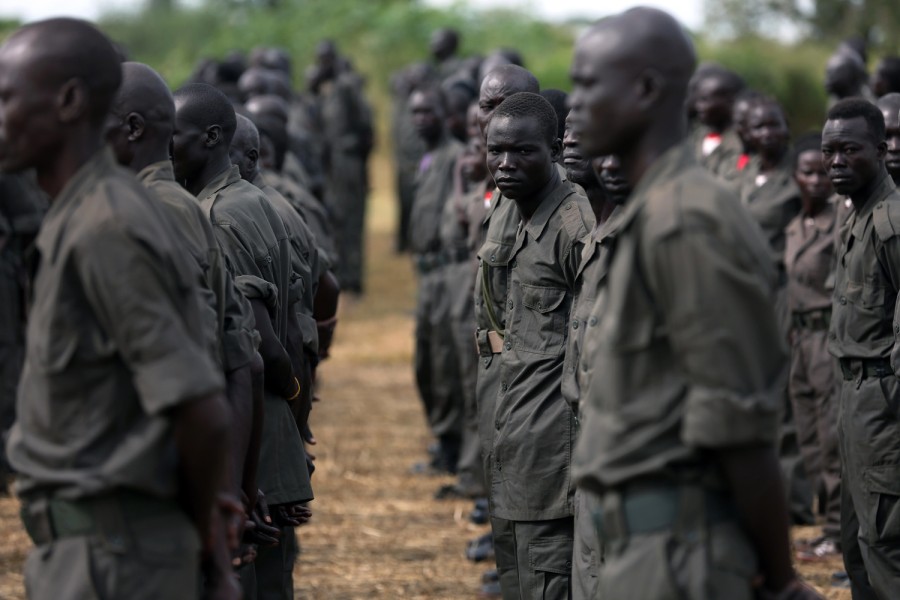The recent move by the signatories to the Revitalized Agreement on the Resolution of Conflict in South Sudan (R-ARCSS) to extend the peace agreement’s life for another 24 months has not come as a surprise. While there have been some positive, though sporadic steps toward fulfilling the R-ARCSS, its implementation has largely been marked by a lack of goodwill, evident by the relevant parties’ persistent failure to meet set deadlines. It is mainly when a major donor or foreign power threatens to withdraw support—financial or military—that the South Sudanese government appears to act, as opposed to doing so from a genuine desire to advance the country’s democratic transition.
A majority of South Sudanese citizens have been hopeful that a general election—most recently slated for December 2022 after two previous extensions of the R-ARCSS and its target timelines—will herald a new dawn where they get to choose their preferred government at the ballot box. They must now again wait, and contend with the current government for another two years. While there has been some skepticism about whether the nation is ready for a democratic election that would end what is generally perceived as the rule of former warlords, the real dilemma is whether these former warlords are ready to give up their power and privileges. Lessons drawn from relatively stable countries in the region, ones that have held elections but nonetheless risk backsliding into conflict due to internal power dynamics, suggest that South Sudan’s prospects for a successful, free, and fair election are precarious. These comparative lessons may be a reason why some relevant parties have been delaying the general election.
Granted, South Sudan is still very fragile, and each day comes with new threats to its quest for peace and stability. For instance, the armed group South Sudan People’s Movement/Army has recently waged a rebellion against the government. This rebellion can be seen as an indicator of the South Sudanese people’s growing frustrations not only with the delays in implementing the R-ARCSS, in particular its demobilization, disarmament, and reintegration provisions, but with a government that increasingly appears to betray their dreams of independence, peace, and democracy. Indeed, runaway corruption, the blame for which falls squarely on a majority of state actors, has literally crippled the government’s operations, to the point where it is unable to cover basic recurring expenditures such as monthly salaries. In such a context, fulfilling the R-ARCSS for many can seem like a pipedream.
That said, the multilateral organizations and governments responsible for brokering the R-ARCSS—the Africa Union, Intergovernmental Authority on Development in Eastern Africa, and the Troika (United States, United Kingdom, and Norway)—still possess tools and wield decisive influence to sway the transitional government to implement the agreement in good faith and within the next two years. For instance, in a laudable move, the Troika has conditioned its support for the transitional government on it taking specific concrete steps as part of a timeline for fulfilling the agreement. These stakeholders could also consider expanding the UN and other sanctions on South Sudanese officials and some citizens, as a way to deter the transitional government from further stalling the agreement’s implementation.
For victims of gross human rights violations, their urgent needs related to the country’s ongoing humanitarian crisis, resulting from a prolonged drought in some areas and devastating floods in others, too-often override their demands for dignity, justice, and repair. To many of them, the process to establish the Commission for Truth, Reconciliation and Healing, which began on January 24, 2022, and the other transitional justice institutions stipulated for in Chapter 5 of the R-ARCSS is simply incomprehensible. They have trouble believing the current political leaders would ever put in place a mechanism that would hold any of them to account. Though, the mandates of the truth commission and other bodies to be created under the Chapter 5 provisions promise truth, justice, acknowledgment, and reparation, for now, victims in South Sudan will have now to hold on a little longer.
___________
In Juba, South Sudan, a training of trainers concludes in 2019. The trainers will help merge troops from the South Sudan People’s Defense Forces and the Sudan People’s Liberation Army in Opposition and create a unified army for the country, which is needed for the establishment of the Transitional Government of National Unity. (UNMISS/Eric Kanalstein)

